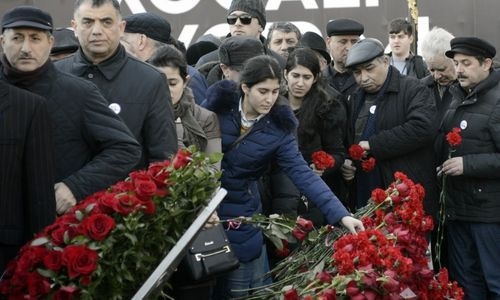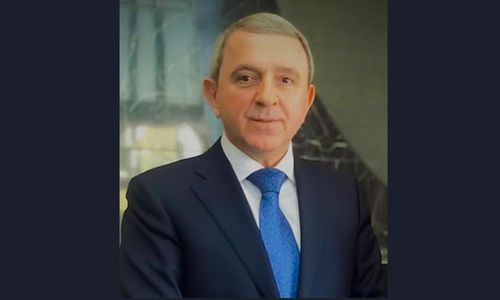Khojaly- justice to be served
By Shahin Abdullayev, Azerbaijan Ambassador to Bahrain
Thirty-one years ago, I, like the rest of Azerbaijan, watched in horror as our TV screens showed the aftermath of a brutal killing: dead children, women and elderly people, mutilated bodies, frozen corpses scattered across the ground.
This shocking footage was taken at the site of the Khojaly massacre – the worst war crime in the Nagorno-Karabakh war between Azerbaijan and Armenia, and one of the worst in modern European history.
At least 613 Azerbaijani civilians, including over 200 women and children, were ruthlessly killed.
The massacre took place on Feb. 26, 1992 when Azerbaijani civilians, attempting to evacuate the town of Khojaly after coming under attack, were gunned down by Armenian troops as they fled towards the safety of Azerbaijani lines.
This brutal attack was not simply an accident of battle.
It was part of Armenia’s deliberate policy of terror: killing civilians would intimidate others into fleeing the region, allowing Armenia’s army to occupy Nagorno-Karabakh and other regions of Azerbaijan.
This was ethnic cleansing, pure and simple. Such a calculated policy of terror was confirmed by the men in charge of it.
Serj Sargsyan, then one of the most senior Armenian military commanders and once country’s president for 10 years, told the British journalist Tom de Waal in 2000 that “Before Khojaly, the Azerbaijanis thought that they were joking with us, they thought that the Armenians were people who could not raise their hand against the civilian population.
We needed to put a stop to all that.
And that’s what happened.” The international human-rights group Human Rights Watch attested to the scale of Khojaly, calling it the “largest massacre in the conflict”, and placed full responsibility on Armenian forces.
Considered by many as an example of modern-day genocide, Khojaly challenges what we thought could never happen. Unfortunately, the tragedy befalling the Azerbaijani people in the early 1990s did not end with Khojaly.
Armenia went further and invaded around 20 percent of Azerbaijan’s sovereign territory, expelling 800,000 Azerbaijanis from their homes and lands.
Ever since, Azerbaijan has struggled for the Khojaly massacre to be recognized by the international community.
An effective international campaign “Justice for Khojaly” launched in 2008 and led by Ms. Leyla Aliyeva, Vice President of the Heydar Aliyev Foundation, has been instrumental in mobilizing efforts aimed at raising international awareness about Khojaly.
A growing number of countries, including the Czech Republic, Bosnia and Herzegovina, Pakistan, Colombia, Peru and Mexico and others, have officially recognized and commemorated Khojaly.
Moreover, over 20 U.S. States have recognized and commemorated the Khojaly tragedy and remembered its victims.
After all these years of occupation, Armenia launched a surprise attack on Azerbaijan in 2020, as a result of the ensuing 44- day war, Azerbaijan liberated its lands from the illegal, U.N. and U.S.-condemned occupation and restored its sovereign borders.
Shortly after the war, the Azerbaijani authorities voiced readiness and determination to sign a peace treaty with Armenia that would ultimately bring the long-awaited peace to the region.
However, the efforts of Azerbaijan aimed at achieving long and sustainable peace between the two countries remained dead in the water because of Armenian government.
Today, Azerbaijan is going from strength to strength: the economy is booming, citizens are proud of the country’s rapid development, and Azerbaijan has emerged onto the world stage as an influential and respected regional power.
It is a vital strategic partner for Bahrain as well. So Azerbaijan is firmly looking towards the future.
But neither the government nor Azerbaijan’s citizens can forget the tragedy of the Khojaly massacre, or the other atrocities inflicted during Armenia’s campaign of aggression.
The perpetrators of Khojaly not only remain at large: many of them hold office and are feted as ‘war heroes’ in Armenia. And justice for the victims of the massacre is still to be secured.
Azerbaijan will continue its long struggle to remember the innocent victims of Khojaly, and to highlight this tragedy in the eyes of the world.
(The views and opinions expressed in this article are those of the author and do not necessarily reflect the official policy or position of the Daily Tribune)
Shahin Abdullayev, Azerbaijan Ambassador to Bahrain
Related Posts


